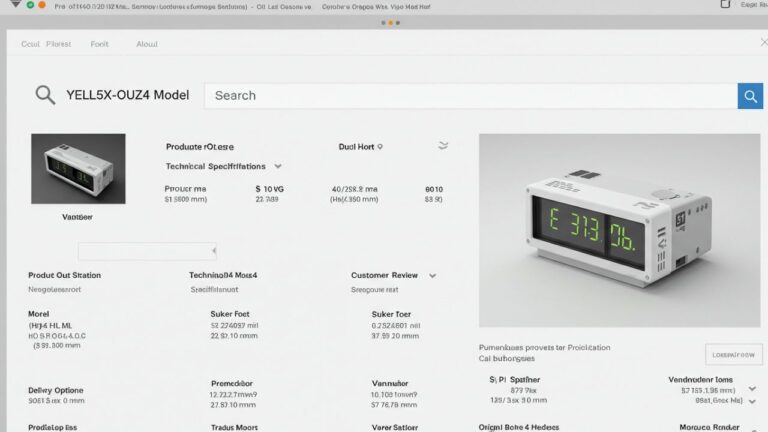
etruesports.com
The Paradigm Shift in Professional Sports
Etruesports.com sports organizations have revolutionized mental health support systems for athletes over the past decade, creating unprecedented resources for competitors facing immense pressure. Moreover, this transformation represents a fundamental shift away from outdated attitudes that often stigmatized psychological struggles within highly competitive environments. Furthermore, major leagues across basketball, football, tennis, and other sports now actively promote mental wellness alongside physical training regimens for optimal performance. Additionally, the integration of comprehensive mental health initiatives directly challenges the traditional “tough it out” mentality that previously dominated locker rooms worldwide. Consequently, athletes today benefit from specialized resources designed specifically to address the unique psychological challenges inherent in elite competition.
Historical Context and Evolution
Athletes historically suffered in silence when experiencing anxiety, depression, or other mental health challenges due to prevalent stigma throughout sports culture. Coaches frequently viewed psychological struggles as weaknesses rather than legitimate health concerns deserving proper attention and professional treatment. Meanwhile, fans and media often criticized players who publicly acknowledged mental health difficulties, creating additional barriers to seeking necessary help. However, pioneering athletes gradually began speaking openly about their struggles, effectively breaking down longstanding taboos surrounding psychological wellbeing in sports. Subsequently, their courage initiated meaningful conversations about creating supportive environments where athletes could address mental health without fear of career repercussions.
Catalysts for Change
Several high-profile athletes dramatically accelerated this cultural transformation by sharing deeply personal mental health journeys despite potential professional consequences. Tennis champion Naomi Osaka triggered substantial policy reviews after prioritizing her mental wellbeing over mandatory press conferences during major tournaments. Similarly, Olympic gymnast Simone Biles demonstrated remarkable courage when withdrawing from events to protect her psychological state while facing tremendous pressure during international competition. Concurrently, NBA stars like Kevin Love and DeMar DeRozan revealed their experiences with anxiety and depression, effectively humanizing elite athletes for millions of fans worldwide. Consequently, these brave disclosures created unprecedented momentum for sports organizations to develop robust mental health resources reflecting evolving understanding of athlete needs.
Comprehensive Support Systems
Professional leagues have subsequently established multifaceted mental health programs integrating clinical services, preventative education, and confidential counseling into standard athlete care protocols. Teams increasingly employ full-time sports psychologists who work closely with players throughout their careers, providing consistent support before, during, and after competitive seasons. Additionally, many organizations now conduct mandatory mental health screenings alongside physical evaluations, recognizing psychological wellbeing as equally important to athletic performance and career longevity. Furthermore, advanced training programs equip coaches and support staff with skills to identify warning signs and appropriately respond to athletes experiencing psychological distress. Undoubtedly, these comprehensive approaches reflect growing recognition that mental health directly impacts overall performance, recovery, and career sustainability.
Technology’s Role in Mental Wellness
Technological innovations have dramatically expanded accessibility to mental health resources for athletes frequently traveling or hesitant to seek in-person support due to privacy concerns. Mobile applications specifically designed for athlete mental wellness provide meditation guides, sleep enhancement tools, and stress management techniques accessible anywhere at any time. Furthermore, secure telemedicine platforms enable athletes to maintain consistent therapy relationships despite demanding travel schedules that previously disrupted regular mental health care. Simultaneously, wearable devices monitor physiological stress indicators, helping athletes recognize connections between mental states and physical performance through objective data analysis. Consequently, these technological solutions complement traditional therapeutic approaches while addressing unique logistical challenges faced by professional athletes throughout competitive seasons.
Changing Team Dynamics
Progressive coaches have revolutionized team environments by openly discussing mental health alongside physical training, creating atmospheres where psychological wellbeing becomes standard conversation. Staff members receive specialized training to identify potential mental health concerns among athletes without overstepping professional boundaries or making clinical assessments beyond their qualifications. Meanwhile, team leaders actively model healthy coping strategies and self-care practices, demonstrating that mental wellness represents strength rather than weakness within highly competitive environments. Consequently, younger athletes entering professional sports today experience dramatically different team cultures compared to previous generations who often suffered silently with psychological challenges. Undoubtedly, these transformed environments support more sustainable careers while promoting healthier relationships both on and off the field.
Financial Investment and Resource Allocation
Major sports organizations have significantly increased financial commitments to mental health services, reflecting growing recognition of their importance to sustainable athletic excellence and organizational success. Dedicated budget allocations now support comprehensive psychological support departments operating alongside traditional physical training and medical facilities within professional teams. Additionally, leagues establish independent mental health funds ensuring players can access services outside team structures when confidentiality concerns arise regarding career implications of seeking help. Furthermore, collective bargaining agreements increasingly include specific provisions for mental health resources, establishing these services as non-negotiable components of professional sports infrastructure. Consequently, this substantial financial commitment demonstrates that mental wellness has transitioned from peripheral concern to central organizational priority.
Media Coverage and Public Perception
Media representations of athlete mental health have evolved significantly, with many outlets now treating psychological struggles with the same legitimacy as physical injuries affecting performance. Sports journalists increasingly consult mental health professionals when covering stories involving psychological components, ensuring accurate representation of complex emotional and cognitive challenges. Furthermore, documentary filmmakers explore athlete mental health journeys with nuance and sensitivity, helping broader audiences understand the psychological dimensions of elite competition. Consequently, public perception has shifted dramatically as fans develop deeper appreciation for the complete human experience behind athletic achievement and competitive setbacks. Undoubtedly, this more holistic media approach helps normalize mental health conversations throughout sports culture.
Educational Initiatives and Prevention
Forward-thinking organizations have implemented comprehensive educational programs addressing mental health literacy among athletes, coaches, and support staff throughout competitive careers. Mandatory workshops introduce effective coping strategies, stress management techniques, and early intervention approaches for common challenges experienced within high-pressure sporting environments. Additionally, specialized curricula address unique psychological aspects of injury recovery, career transitions, and performance pressure that frequently trigger mental health challenges among athletes. Furthermore, preventative programs emphasize lifestyle factors supporting psychological wellbeing, including sleep hygiene, nutrition, relationship building, and identity development beyond athletic achievement. Consequently, these educational initiatives equip sports communities with practical tools for maintaining mental wellness while navigating the inherent stresses of professional competition.
Young Athlete Development
Youth sports programs have dramatically transformed their approaches to mental health, implementing age-appropriate psychological support systems preparing young athletes for challenges throughout their competitive careers. Development academies increasingly employ qualified mental health professionals who work directly with promising young competitors navigating intense pressures during formative psychological development stages. Meanwhile, coaches receive specialized training regarding youth-specific mental health considerations, enabling them to create appropriately supportive environments without overstepping professional boundaries. Furthermore, parent education programs address family dynamics surrounding competitive youth sports, reducing psychological pressure that frequently contributes to early burnout and anxiety disorders. Consequently, young athletes entering professional ranks today arrive with substantially better psychological preparation than previous generations.
Addressing Diversity in Mental Health Support
Progressive sports organizations have developed culturally responsive mental health services acknowledging how factors including race, nationality, gender, and socioeconomic background significantly influence psychological experiences and help-seeking behaviors. Recruitment efforts prioritize diverse mental health professionals who understand unique challenges faced by athletes from various backgrounds competing within predominantly white institutions or foreign countries. Additionally, support materials and therapeutic approaches incorporate culturally specific considerations rather than applying universal models that may ineffectively address certain populations’ needs. Furthermore, multilingual services ensure international athletes can discuss complex emotional experiences in their primary languages, significantly enhancing therapeutic effectiveness and accessibility. Consequently, these thoughtfully designed approaches better serve increasingly diverse athlete populations competing throughout global sports industries.
Post-Career Transitions and Long-Term Support
Forward-thinking leagues have established comprehensive transition programs supporting athletes through psychologically challenging career endings often accompanied by significant identity disruption and purpose questioning. Retirement preparation initiatives begin years before anticipated career conclusions, helping athletes develop multidimensional identities and interests extending beyond their sporting achievements. Moreover, alumni associations maintain long-term mental health resources accessible to former players experiencing delayed psychological impacts years after competition concludes. Furthermore, peer mentorship programs connect recently retired athletes with those who successfully navigated similar transitions, providing valuable emotional support from individuals with shared experiences. Consequently, these extended support systems acknowledge that mental health needs often persist or intensify during major life transitions following competitive careers.
Measuring Effectiveness and Continuous Improvement
Leading sports organizations have implemented sophisticated assessment protocols measuring mental health program effectiveness through various metrics while maintaining appropriate confidentiality standards protecting athlete privacy. Anonymous feedback mechanisms collect athlete perspectives regarding service accessibility, cultural responsiveness, and perceived benefit without compromising confidential therapeutic relationships. Additionally, aggregated utilization data helps organizations identify potential gaps in service provision or athlete populations showing resistance to seeking available support. Furthermore, comparative analysis across different sports identifies unique psychological challenges within specific competitive environments, enabling customized programming addressing sport-specific mental health considerations. Consequently, this evidence-based approach enables continuous improvement of mental health services through systematic evaluation rather than anecdotal assessment.
Remaining Challenges and Future Directions
Despite substantial progress, significant challenges remain in fully optimizing mental health support systems throughout professional sports environments worldwide. Competitive pressure continues creating barriers for athletes concerned about appearing mentally vulnerable while pursuing high-stakes performance goals against determined opponents. Additionally, smaller market teams and less profitable sports often struggle allocating sufficient resources toward comprehensive psychological support services matching industry best practices. Furthermore, international sports governing bodies face complex challenges implementing standardized mental health protocols across diverse cultural contexts with varying psychological healthcare traditions and accessibility. Nevertheless, ongoing dialogue between athletes, mental health professionals, and sports administrators drives continuous innovation addressing these persistent challenges.
Conclusion
Professional sports have undergone revolutionary transformation regarding athlete mental health support, creating environments where psychological wellbeing receives equal priority alongside physical conditioning and technical skill development. This profound cultural shift reflects broader societal evolution toward mental health awareness while acknowledging unique pressures inherent within elite competitive environments. Moreover, continued investment in comprehensive psychological support systems demonstrates commitment to athlete wellbeing extending beyond performance metrics and competitive outcomes. Furthermore, younger generations entering professional sports benefit from unprecedented resources supporting complete human development throughout their athletic careers and beyond. Undoubtedly, this holistic approach creates more sustainable competitive environments while honoring athletes’ complete humanity beyond their extraordinary physical capabilities that captivate global audiences.







